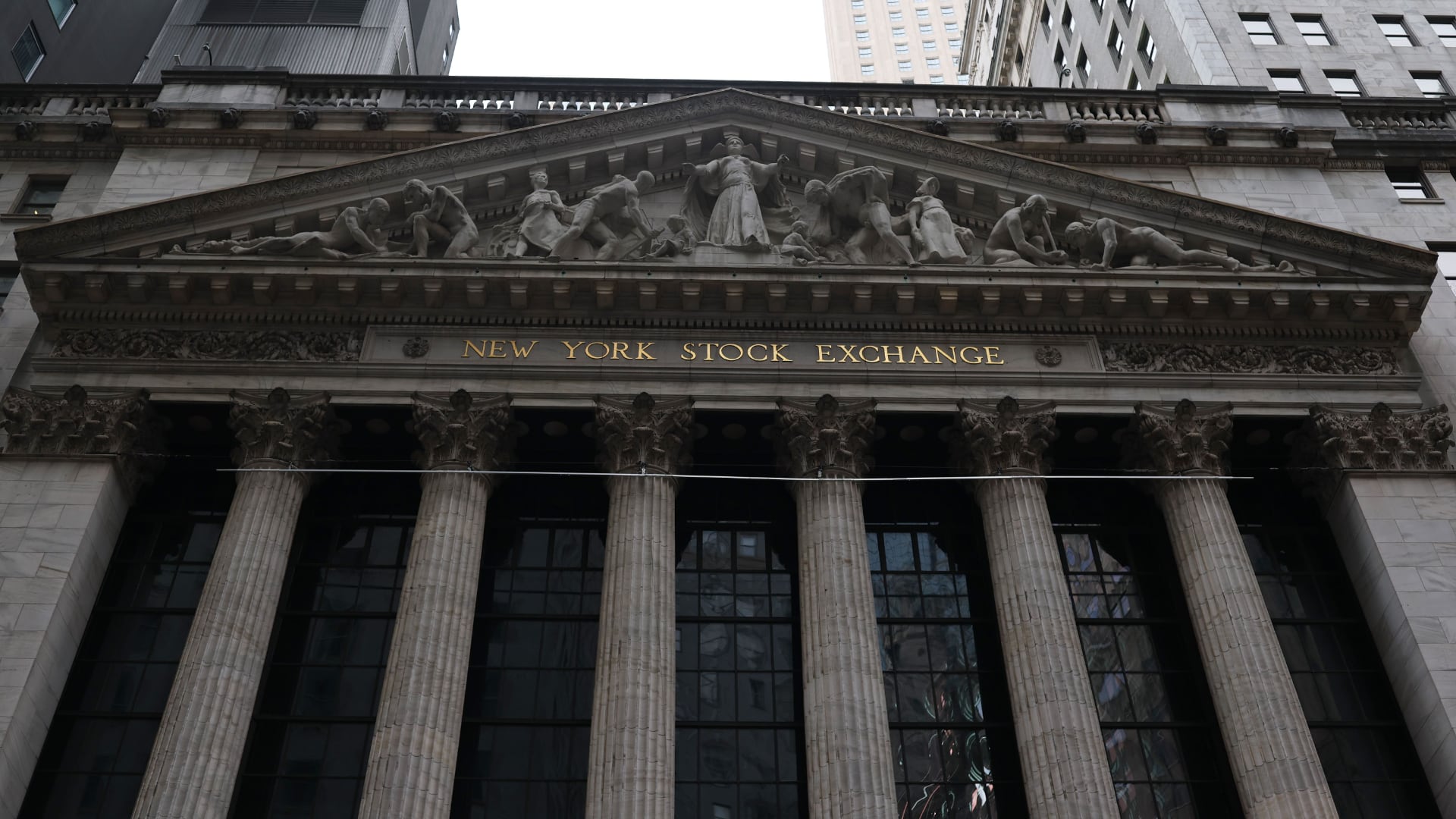Mistakes in a plane: A new Boeing whistleblower says the 787 may fall apart in flight
Another whistleblower has dropped a dime on Boeing. Sam Salehpour, an engineer who has worked on Boeing’s 787 Dreamliner plane, told regulators the plane has manufacturing flaws that may cause it to fall apart in mid-flight, launching another Federal Aviation Administration investigation.
Boeing says its own studies have disproven the allegations by Salehpour, who shared his comments with the New York Times. Salehpour says that because fuselage sections of the 224-foot-long plane are manufactured at different factories before their final assembly at Boeing’s North Charleston, South Carolina, plant, they’re not all quite the same shape, putting undue stress on the jetliner’s carbon fiber frame.
That’s the same plant where another Boeing whistleblower, John Barnett, said lax inspections led to safety issues with doors on the 737 Max. A door panel fell off an Alaska Airlines Max in mid-flight in January, prompting a criminal investigation by the Justice Department, and the impending resignation of Boeing CEO Dave Calhoun. Barnett died last month, an apparent suicide.
Boeing’s share price has plummeted since the January 5 Alaska Air door incident, dropping from about $250 to $172 on Thursday, battered further by the aborted merger of Spirit Airlines with JetBlue. In an ironic knock-on effect, Spirit's delay in purchasing new jets from Airbus will let Airbus sell those planes to Boeing customers.
Rate cuts delayed amid stubborn inflation
So much for a soft landing, at least for now. Just a week ago, Fed chairman Jerome Powell said inflation was “bumpy,” but appeared to be coming under control, hovering just above the Fed’s target of 2 percent, and that could pave the way for a cut in interest rates. But inflation numbers that came in Wednesday — with core inflation at 3.5 percent, above February’s 3.2 percent — suggest prices are going to stay up about 3 percent this year, and that means a rate cut is off the table, for now.
What’s pushing inflation? Everything. Oil prices are up more than 20 percent since mid-December, to over $90 a barrel, partly on fears of a wider Middle East war, a lack of Russian crude and Houthi missile attacks near the Suez Canal. Housing prices rose 5.7 percent in March from a year earlier. Future contracts show traders are betting the Fed funds rate to end the year at about 5 percent, from 5.25 to 5.5 percent now. That’s higher than many had expected in January. And car insurance of all things was up 2.6 percent in March from February.
So who wins? Mortgage companies, for sure. Anyone who buys now locks in a high rate for the foreseeable future (When rates drop, it still takes time to refinance), and gold bugs. The price of the precious metal is up nearly $300 since the beginning of March, to $2,350 a troy ounce.
Chips ahoy!
There’s a lot baking in the chip business right now. On Monday, the Biden Administration announced $6.6 billion in grants to bring the world’s most advanced chipmaker, Taiwan Semiconductor Manufacturing Co., and its bleeding edge technology to the U.S.
TSMC will build three plants at a new hub in Phoenix, its U.S. investments from $45 billion to $60 billion. Last month, Biden offered Intel $8.5 billion in grants and $11 billion in loans to increase its chipmaking capacity at home. A reliable domestic supply of semiconductors is seen by federal officials and business groups as key to keeping the U.S. economy competitive. Meanwhile Google and Meta are looking to protect their own AI markets by designing and building their own bespoke chips that can handle their own tasks.
Axion, as the new Google chip is called, will soon have Google competing with its own suppliers, including Nvidia and Intel. All that chip-making is great, but are we making the right chips? Rene Haas, CEO of Arm, the UK-based chip-design company owned by megafund Softbank, told the Wall Street Journal this week that AI models are “insatiable” in their thirst for power, and by 2030 AI data centers alone could eat up as much as 25 percent of all U.S. power.
Haas, whose firm built the chips that let smartphones do so much with a tiny battery, is putting $25 million into a $110 fund to research AI chips at U.S. and Japanese universities. Which leaves one big question: will there be any power left for Bitcoin miners?
It’s gonna be big: Chase’s Jamie Dimon says AI is the world’s biggest challenge
Annual letters to shareholders tend to be a dull recitation of a company’s achievements, and the risks and rewards it faces in the coming year. Warren Buffett’s annual letter to Berkshire Hathaway shareholders has been one of the few exceptions, mined by investors for insights from the world’s most successful investor. Now, add JPMorgan Chase’s Jamie Dimon to the list of important letter-writers.
What’s on his mind? Not the U.S. election, not war in the Middle East or Europe, but artificial intelligence.
“While we do not know the full effect or the precise rate at which AI will change our business — or how it will affect society at large — we are completely convinced the consequences will be extraordinary,” Dimon wrote. He said the impact of AI will be “possibly as transformational as some of the major technological inventions of the past several hundred years: Think the printing press, the steam engine, electricity, computing, and the Internet.”
That’s big, and it matters because many investors read Dimon's letter carefully — after all, he runs the largest bank in the free world (the fifth largest by reported assets, after four Chinese banks). Other topics on his mind:
- Inflation, boosted by government spending, rising military budgets and the cost of going green
- A soft landing for the U.S. economy, whose likelihood he pegs at “a lot lower” than 70 percent to 80 percent
- Commercial real estate, which has been crushed by a mere 2 percent rise in interest rates
- A growing gap in understanding between bankers and regulators
- War in Ukraine and the Middle East, a reminder that “national security is and always will be paramount, even if its importance seems to recede in tranquil times”
- And social media. Social media? Yes, Dimon wants more user control, and in particular, more parental control of TikTok
Big Banks are making profits, but the market worries about the future
America’s big banks start reporting earnings this week, and while profits are up, stock prices are falling. JPMorgan Chase, the largest U.S. bank and the fifth largest in the world by reported assets, said Friday that first-quarter earnings rose 6 percent, with profits of $13.4 billion, or $4.44 a share. This is up from $12.6 billion or $4.11 a share a year earlier. Analysts had forecast $4.17 a share.
A jump like that would normally send share prices climbing, with investors wondering what secret sauce they missed and expecting it to boost profits even more in the coming quarters. Instead, by late morning shares were down 5.6 percent to $184.49. Wells Fargo said its profits were down 7 percent, and its share price stayed flat, even as its profits of $1.26 a share beat analysts’ prediction of $1.11.
Citigroup added to the gloom, as its profits fell 27 percent to $3.4 billion in the quarter, due in part to a $483 million bill from CEO Jane Fraser’s sweeping reorganization of the perennial number two. The result still beat analysts’ forecasts, and Citi’s shares were stable late Friday morning, down less than a single percentage point, hovering around $60.75.
So why the long faces? JPMorgan Chase projected its full-year net interest income, the difference between what it earns on loans and securities minus what it pays depositors, would be flat from last year, as persistently high interest rates keep borrowers from asking for money. At Wells Fargo, the bank’s net interest income, fell 8 percent in the quarter.
“Most indicators are that the growth has been fairly persistent in the last couple of quarters,” Hugh Anderson, managing director at HighTower Advisors, told Reuters.”I would expect that the banks are going to show some decent earnings, but they also might show some cracks in the other parts of the reports, such as delinquencies, defaults and the like, because there is some evidence of that in the market.” The market seems to agree that the future is not exactly rosy. The S&P 500 banks index fell 2.4 percent to hit its lowest level in nearly a month.
Peter S. Green is a veteran reporter and editor who has spent more than two decades covering business and finance from Eastern Europe to New York City, and has worked for Bloomberg News, The New York Post, The New York Times and The Messenger. He lives in New York City and is always looking for the next big story.













